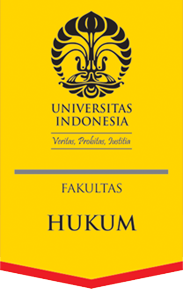DOI
10.21143/jhp.vol49.no3.2198
Abstract
Actually marriage is a sacred thing. The contract that unites the two opposite sexes is bound strongly (mitsaqan ghalizha). A strong agreement is concluded in the agreement between the guardian and the prospective husband. Indonesian civil law requires saying sighat ta’liq husband to his wife. The core content of sighat ta’liq is a conditional divorce between the two if the conditions have been fulfilled. Islamic law considers marriage to be legitimate if it has enough conditions and pillars, without sighat ta'liq. Indonesian law requires the requirements of sighat ta'liq in government policy through the decree of the minister of religion number 3 in 1953. The purpose of the existence of sighat ta’liq is to protect the wife from the abuse of her husband, if the husband violates the wife has the right to sue the religious court (divorce). Lafadz sighat ta’liq was made referring to the regulation of the minister of religion number 2 in 1990, but the lafadz contained a new understanding of marriage and the promise of divorce. Compilation of Islamic Law (KHI) as an explanatory regulation from UUP number 1 of 1974 Article 46 paragraph 3 does not require sighat ta’liq.
Bahasa Abstract
Sebenarnya pernikahan adalah hal yang sakral. Kontrak yang menyatukan dua lawan jenis sangat terikat (mitsaqan ghalizha). Kesepakatan yang kuat disimpulkan dalam perjanjian antara wali dan calon suami. Hukum perdata Indonesia mengharuskan suami mengucapkan sighat ta'liq kepada istrinya. Isi inti dari sighat ta'liq adalah perceraian bersyarat antara keduanya jika kondisinya telah terpenuhi. Hukum Islam menganggap pernikahan itu sah jika memiliki kondisi dan pilar yang cukup, tanpa sighat ta'liq. Hukum Indonesia mensyaratkan persyaratan sighat ta'liq dalam kebijakan pemerintah melalui Keputusan Menteri Agama nomor 3 pada tahun 1953. Tujuan dari keberadaan sighat ta'liq adalah untuk melindungi istri dari penyalahgunaan suaminya, jika Suami melanggar hak istri untuk menuntut pengadilan agama (perceraian). Lafadz sighat ta'liq dibuat mengacu pada Peraturan Menteri Agama nomor 2 pada tahun 1990, tetapi lafadz berisi pemahaman baru tentang pernikahan dan janji perceraian. Kompilasi Hukum Islam (KHI) sebagai penjelasan peraturan dari UUP nomor 1 tahun 1974 Pasal 46 ayat 3 tidak mensyaratkan sighat ta'liq.
References
Abdul Aziz Dahlan, Encyclopedia of Islamic Law, Jakarta: Ichtiar Baru van Hoeve, 2016. Abdul Manan, "The Problem of Ta'lik Talak in Marriage Law in Indonesia". Legal pulpit. No. 23 Years VI Jakarta: Al-Hikmah, 1995. Abdul Manan, Application of Civil Procedure in the Environment of the Religious Courts. Jakarta: Al-Hikmah, 2010. Abu Al Ula Muhammad Abdurrahman bin Abdurrahim Al Mubarakfuri, Tuhfatul Ahwazi, Solo: Library Azzam, 2011. Ahmad Rofiq, Islamic Law in Indonesia, Jakarta; PT Raja Grafindo Persada, 2008. Anny Najiah, "Overview of Islamic Law on Violations of Ta'liq Talak as the reason for Divorce". Research. Yogyakarta: Faculty of Sharia and Law Department of Family Law UIN Sunan Kalijaga, 2014. Ministry of Religion of the Republic of Indonesia, Al-Qur'an and Translation, Jakarta: Procurement Project of the Holy Qur'an, 20011. Hisako Nakamura, Javanese Divorce, Yogyakarta: Gajahmada University Press, 2011. Ibrahim Hosen, Comparative Fiqh in Marriage, Thalaq, Rujuk and Inheritance Law Issues, Jakarta: Islamic Library and Publishing Center Ihya Ulumuddin Indonesia Foundation, 2011. Imam Abi Abdillah Muhammad bin Ismail bin Ibrahim, Shahih Bukhari, Beirut: Darul Kutub al-ilmiyah, t.th. Imam Muhammad Ismail, Subulus Salam, Beirut, Lebanon: Darul Kitab al-Ilmiyyah, 2014. Kamal Mukhtar, Principles of Islamic Law on Marriage. Jakarta; Bulan Bintang, 2014. State Gazette UUP No. 1 of 1974; see also Hasbullah Bakay, Complete Collection of Marriage Regulations in Indonesia. Jakarta: Djambat, 2015. The State Gazette, "Compilation of Islamic Law in Indonesia" (KHI), Directorate of Islamic Justice Development Directorate General of Islamic Institutional Development. Ministry of Religion, 2001. State Gazette, Marriage Law in Indonesia and Compilation of Islamic Law in Indonesia, Surabaya; Arloka, t.th. Louis Ma’luf, Al-Munjid, Beirut: Darul Masyriq, t.th. Mahmud Yunus, Arabic-Indonesian Dictionary, Translator/Interpretation of the Qur'an, Jakarta, 2012. Muh. Sudirman Sesse, "Ta’lik Talak in Fiqh Perspective and Compilation of Islamic Law (Comparative Analysis)". Dictum Journal. Wednesday, January 28, 2015. Nasaruddin Umar, When Jurisprudence Defended for Women, Jakarta; Pt Elex Media Komputindo, 2014. Nihayatul Ifadhloh, "Taklik Talak As Marriage Agreement (Study of Analysis of Compilation of Islamic Law in Indonesia Article 45)". Research. Semarang: Syari'ah Faculty and Law of the Walisongo State Islamic University, 2016. Ratno Lukito, Struggle between Islamic and Customary Law in Indonesia. Jakarta: Inis, 2008. Ru'fah Abdullah, "Agreement in Marriage of the Perspective of Islamic Law and Legislation". Journal of Gender and Child Studies. Vol. 3 No. 1, January-June 2016, 31-49 Sayuti Thalib, Indonesian Family Law, Jakarta: VI Publisher Foundation, 2014. Sayyid Sabiq, Fiqh Sunnah, Beirut: Daar el-Fikr, 2013. Sayyid Sabiq, Fiqh Sunnah. Bandung: Al-Ma’arif, t. th. Sayyid Sabiq, Fiqhu al-Sunnah, Cairo: Maktabah Ma’arif, t.th. Sofyan Yusuf and Moh. Toriqul Chaer, "Taklik Talas on the Perspective of Ulamas of the School and Its Effect in Housekeeping". Il Anil Islam, Vol. 10 No. 2, December 2017, 262-284. Sulaiman Rasjid, Islamic Fiqh. Jakarta: Attahriyah, t.th. Uswatun Khasanah, "Reasons for the occurrence of Taklik Talak Violations in Divorce (Case Study in Karangmoncol Village, Randudongkal District, Pemalang District)". Research. Semarang: Faculty of Sharia Walisongo State Islamic University, 2015. Wahbah Zuhaili, al-Usul al-Fiqh Islami, Beirut: Dar al-Fikr, 2011.
Recommended Citation
-, Nurhadi
(2019)
"ANALYSIS OF LAFADZ TA'LIQ TALAK IN ISLAMIC LAW PERSPECTIVE AND CIVIL LAW OF MARRIAGE/COMPILATION OF ISLAMIC LAW,"
Jurnal Hukum & Pembangunan: Vol. 49:
No.
3, Article 14.
DOI: 10.21143/jhp.vol49.no3.2198
Available at:
https://scholarhub.ui.ac.id/jhp/vol49/iss3/14

